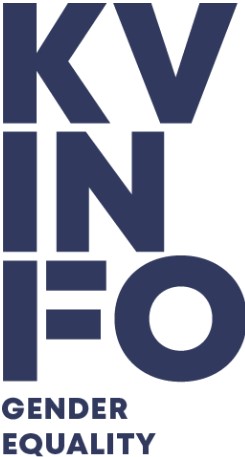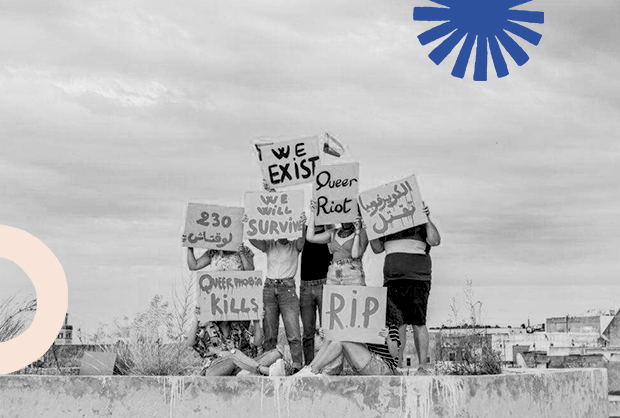In 2010, the Tunisians took the lead in launching the Arab Spring. Tunisia has been considered a pioneer ingender equality and reforms ever since.
Unfortunately, this is no longer the case. Not only is Tunisia one of the countries that was hit the hardest by COVID-19 on the African continent. On top of the severe health crisis Tunisia has faced, the prolonged economic crisis has pushed the North African country into deep divisions.
Many Tunisians have found that their living conditions have worsened despite political reforms and promises of better times ahead. In fact, the economic development continues its downward trend with public debt at around 84%, the highest level ever.
Tunisians have once again taken to the streets to protest against economic inequality, corruption and the government’s handling of the pandemic. At the end of July 2021, President Kais Saied dismissed Prime Minister Hichem Mechichi and introduced a series of other emergency measures. A move that has been met with both enthusiasm and concern. The restrictions have hit civil society hard.
For the past seven years, the Tunisian LGBTQ+ organisation, Mawjoudin, has been a safe space for young Tunisians with an LGBT+ background in collaboration with LGBT+ Danmark and KVINFO. KVINFO spoke to LGBT+ Danmark about the challenges Mawjoudin has faced and continues to face.
The partnership with mawjoudin
Mawjoudin and LGBT+ Danmark’s partnership project aims to empower members of the LGBTQ+ community and the LGBTQ+ movement in Tunisia, thereby creating the basis for greater acceptance in society.
The project works partly through LILO workshops targeting LGBTQ+ people and partly through advocacy with policy makers, organisations, professionals and other stakeholders.
The partnership is part of KVINFO’s five-year gender equality programme in the Middle East and North Africa and is funded by the Danish-Arab Partnership Programme under the Ministry of Foreign Affairs.
Young LGBTQ+ people put under enormous pressure
Like many people around the world, Tunisians have been subject to COVID-19 restrictions, including limiting the ability to assemble and imposing lockdowns in their own homes.
This has made the already precarious situation of Tunisia’s LGBTQ+ community even shakier.
“Mawjoudin has been a safe space for LGBTQ+ youth, but suddenly they weren’t able to gather due to the pandemic. It has served a refuge from an oppressive society and toxic family relationships. Mawjoudin was obliged to shut down, and many have therefore felt isolated,” says Abir Bechwal, International Programme Manager for LGBT+ Danmark.
“It has affected them in a profoundly negative way. The people we work with are typically young people under the age of 25. The majority of young people live at home with their families. They stay with their families until they complete their education and get married.”
Mawjoudin had to adapt quickly, and they succeeded, especially during the first two waves of COVID-19. This meant that Mawjoudin now offered part of their activities online. However, the big challenge has been for those who were still living at home with their families. Some of the things that Mawjoudin has learned do not work quite the same way online basically come down towhere the participants are located, says Connie Carøe Christensen, Senior Programme Advisor in KVINFO’s international department.
“You might be sitting at home with your family where you might not be as free to talk as you would like to. And that’s a big problem,” she says.
Abir Bechwal also mentions how Mawjoudin’s emergency phone number has been overwhelmed by calls.
“It worked in the beginning with online events. But then people got hit by online fatigue and frustration and needed face-to-face and physical contact,” says Abir Bechwal.
Connie Carøe Christensen adds:
“These are very personal workshops that are offered in locations where the topic of discussion is often about being able to talk about coming to terms with one’s identity. It is difficult to deal with the people who are left with difficult thoughts that may emerge during the workshop. You can’t offer the same care when you’re having important conversations online.”
Small steps, yet big changes
From meeting in a café being risky less than 10 years ago, to being able to witness the ongoing development all comes down to the important and hard work done by local organisations, says Abir Bechwal from LGBT+ Danmark.
“It has been slow, but it is a steady and impactful change we are witnessing. The interesting thing about the Tunisian LGBTQ+ civil society, especially Mawjoudin, has been that they have taken a cautious, strategic and tactical approach,” says Abir Bechwal.
“They have not faced the substantial backlash that we have seen in neighboring countries, such as Algeria and Morocco, where they have typically used classic moves that have been more confrontational, employing big campaigns that get a lot of visibility but have led to a homophobic backlash. The Tunisian movement has been very cautious, but they also have the “luxury” compared to other countries in the region of having the freedom to organise and protest. So, at the same time, it’s really hard to compare countries.”
However, the country is facing a series of crises, with the COVID-19 pandemic, an ailing economy and political chaos threatening the country’s stability.
– Is there hope for Mawjoudin’s future work in these uncertain times of crisis?
“Many have lost hope and faith in the future because things are so bad. Tunisia has been the country on which people have pinned the most hopes. Now, it has all but ground to a halt. This is something that affects members of the LGBTQ+ community perhaps even more so,” says Connie Carøe Christensen from KVINFO.
“They, more than anyone, need to see change. I can imagine the country’s crises adding to their struggle for better rights as representatives of the LGBTQ+ community. In other words, a difficult situation has become even more difficult. People do not have adequate resources or personal power to enter the world with a bang. You can hardly ask for more. Just the fact that they have continued their work is impressive,” says Connie Carøe Christensen.
In just 24 hours in early August, more than half a million Tunisians were vaccinated, according to the Tunisian Ministry of Health. They have announced a target of 50 percent of Tunisia’s population of 11.6 million to be fully vaccinated by mid-October. News that has sparked hope. In fact, Abir Bechwal from LGBT+ Danmark has noticed this hope being kept well and alive among his colleagues and friends in Tunisia.
“My colleagues in Mawjoudin and my friends in Tunisia are optimistic by nature. When we look at how much has been achieved for LGBT+ rights in Tunisia, all you can do is hope. When the young movement started back in the early 2010s, no one dared to dream that everything Mawjoudin has achieved would be possible,” says Abir Bechwal.
“I think I can only be hopeful if I remain slightly cautious.”
The challenges are vast. Nevertheless, Mawjoudin is keeping their heads above water and continuing down the path they have successfully paved for young LGBTQ+ people in Tunisia – one small step at a time.
________________________________________
Please accept marketing cookies to be able to see the content below.
Mawjoudin’s Pride campaign video 2021


